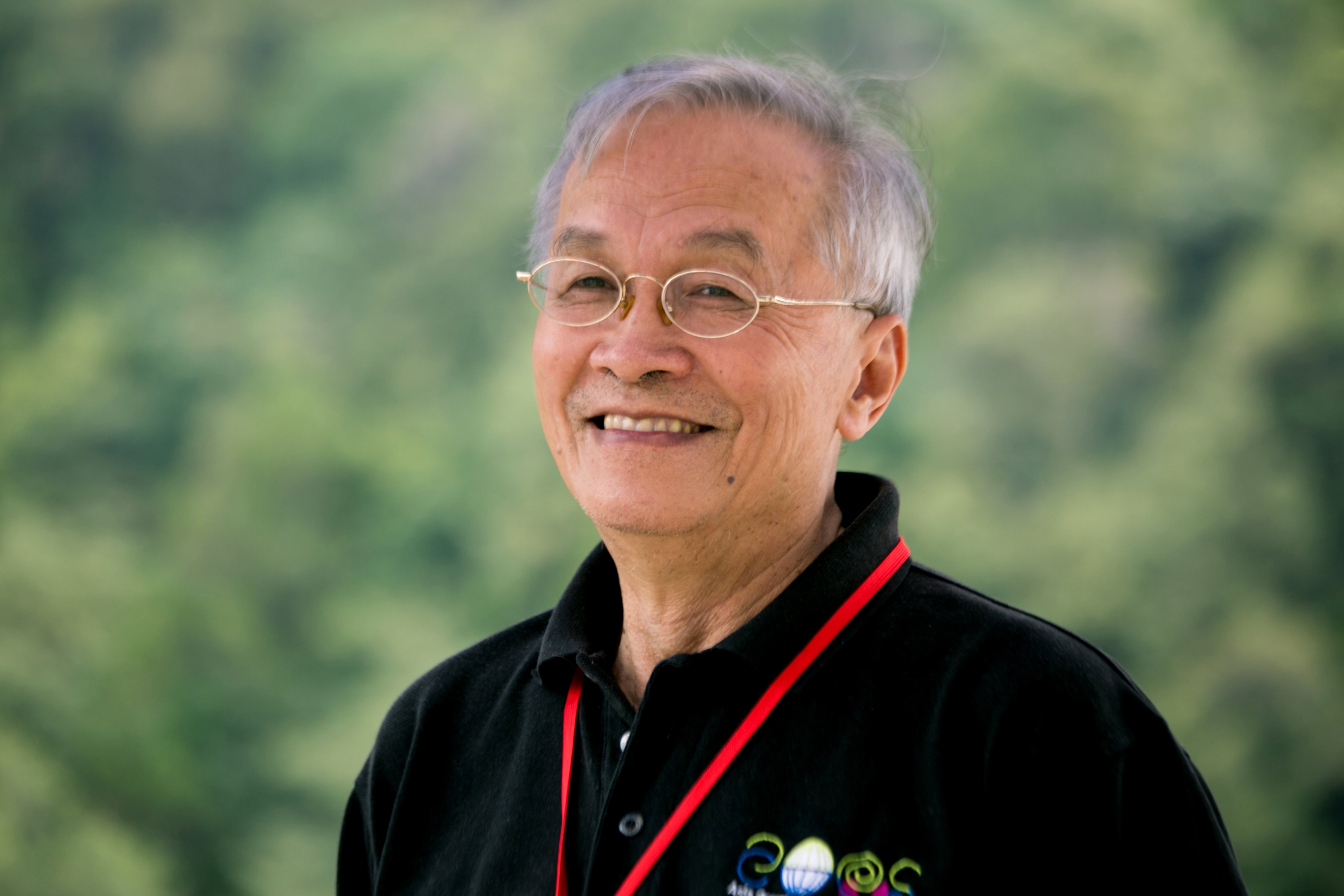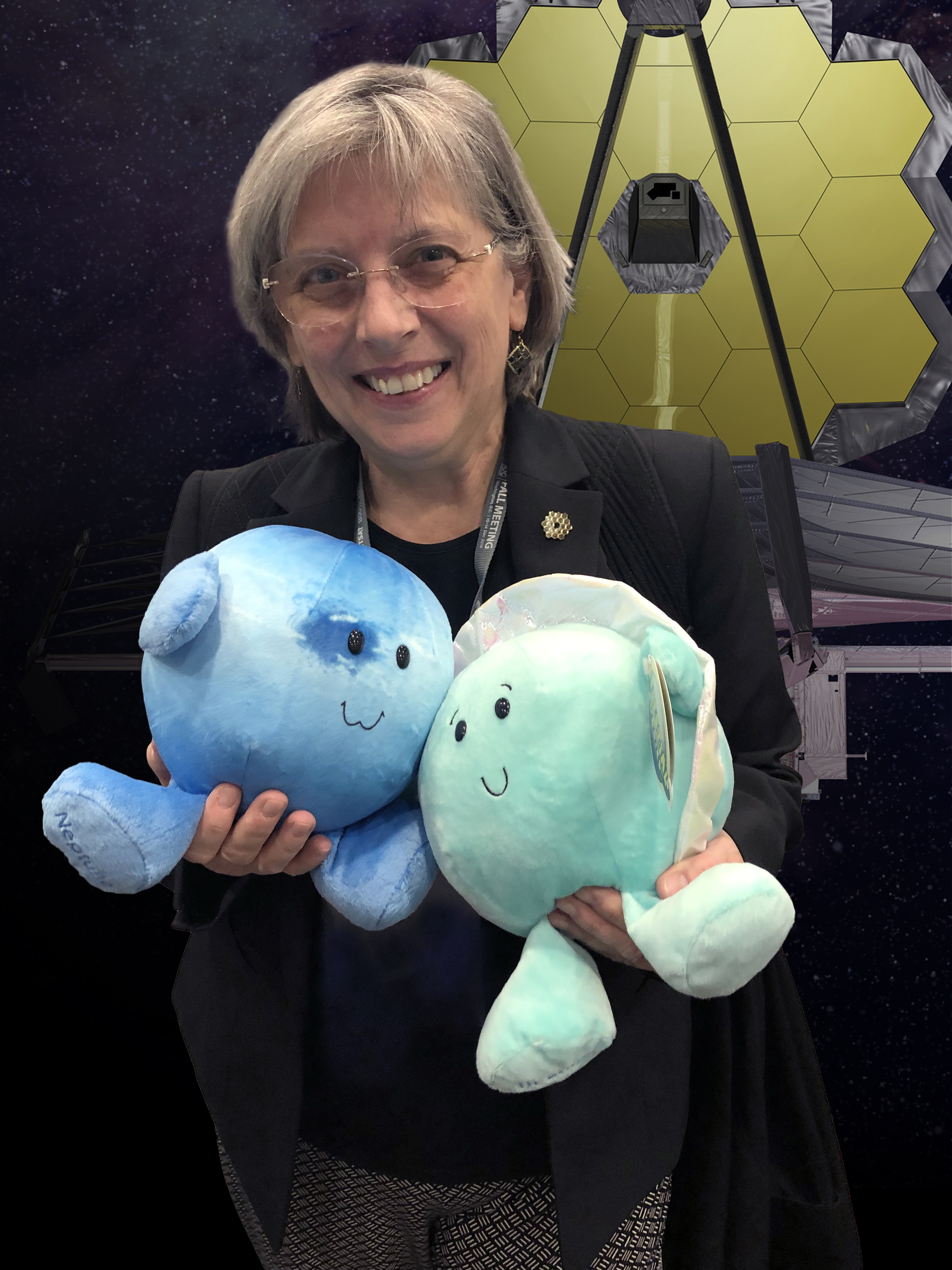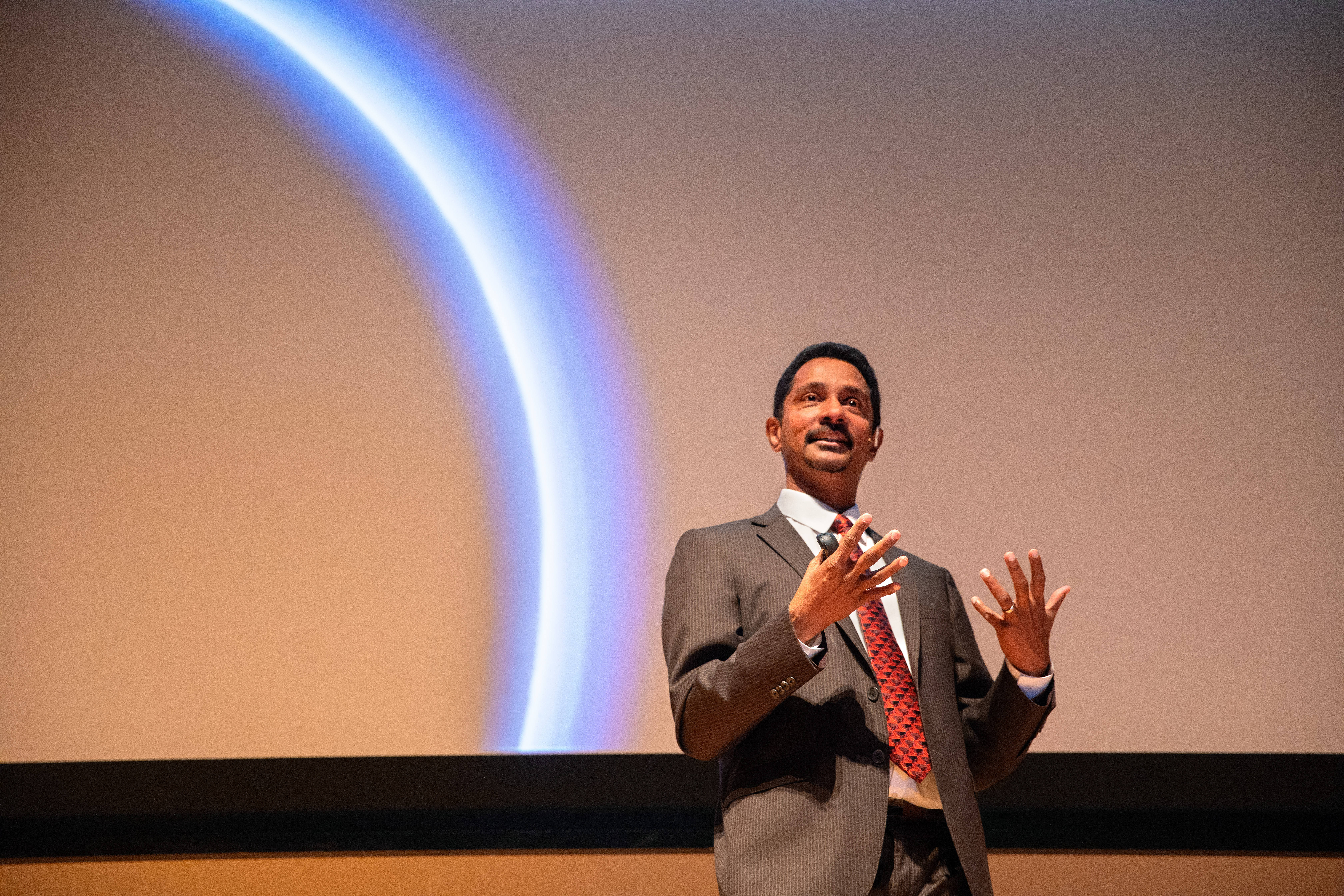14 August 2020
The Division for Planetary Sciences (DPS) of the American Astronomical Society (AAS) has named its prize winners for 2020.
 The DPS awards the 2020 Gerard P. Kuiper Prize for outstanding contributions to the field of planetary science to Professor Wing-Huen Ip (Institute of Astronomy, National Central University, Taiwan) for his contributions to advancements in comet plasma physics, solar-system dynamics, and magnetospheric interactions with atmospheres and solid surfaces. One example of his seminal contributions includes his paper in Nature that presented a model for the formation of magnetism-free cavities at Comet Halley; three decades later, the same phenomenon was seen on 67/P Churyumov-Gerasimenko by Rosetta. Wing was the founding president for the Asia-Oceania Geosciences Society (AOGS) and is known as one of the three fathers of the Cassini-Huygens mission to Saturn and Titan. He has also participated as a co-investigator on numerous planetary missions and has exerted a strong influence on planetary science through international collaborations and training and inspiring young scientists.
The DPS awards the 2020 Gerard P. Kuiper Prize for outstanding contributions to the field of planetary science to Professor Wing-Huen Ip (Institute of Astronomy, National Central University, Taiwan) for his contributions to advancements in comet plasma physics, solar-system dynamics, and magnetospheric interactions with atmospheres and solid surfaces. One example of his seminal contributions includes his paper in Nature that presented a model for the formation of magnetism-free cavities at Comet Halley; three decades later, the same phenomenon was seen on 67/P Churyumov-Gerasimenko by Rosetta. Wing was the founding president for the Asia-Oceania Geosciences Society (AOGS) and is known as one of the three fathers of the Cassini-Huygens mission to Saturn and Titan. He has also participated as a co-investigator on numerous planetary missions and has exerted a strong influence on planetary science through international collaborations and training and inspiring young scientists.
 The 2020 Harold C. Urey Prize for outstanding achievement in planetary research by an early career scientist goes to Dr. Rebekah Dawson (Pennsylvania State University) in recognition of her groundbreaking research on planetary dynamics, the formation of planetary systems, and the characterization of exoplanets on close-in orbits. In one of her early works on understanding radial-velocity data for multiplanet systems, she re-analyzed archival data for planet 55 Cancri e and discovered previous misinterpretations; in doing so she paved a path for future observations to correctly characterize both this exoplanet and others. Rebekah exemplifies scientific leadership in her organization of prominent conferences and her involvement in planning future NASA missions such as the Large Ultraviolet Optical Infrared Telescope (LUVOIR).
The 2020 Harold C. Urey Prize for outstanding achievement in planetary research by an early career scientist goes to Dr. Rebekah Dawson (Pennsylvania State University) in recognition of her groundbreaking research on planetary dynamics, the formation of planetary systems, and the characterization of exoplanets on close-in orbits. In one of her early works on understanding radial-velocity data for multiplanet systems, she re-analyzed archival data for planet 55 Cancri e and discovered previous misinterpretations; in doing so she paved a path for future observations to correctly characterize both this exoplanet and others. Rebekah exemplifies scientific leadership in her organization of prominent conferences and her involvement in planning future NASA missions such as the Large Ultraviolet Optical Infrared Telescope (LUVOIR).
 The 2020 Harold Masursky Award for meritorious service to planetary science goes to Dr. Heidi B. Hammel (Association of Universities for Research in Astronomy) for her extensive and impactful service, over nearly 30 years, on a diverse set of advisory boards, editorial boards, panels, committees, task forces, and councils for professional organizations. Heidi has a unique reputation as an advocate for the entire planetary science community, often ensuring that observatories — including the upcoming James Webb Space Telescope — and other facilities consider the full range of research opportunities pertinent to planetary science. As a tireless proponent for exploration of the distant ice giants, both via Earth-based astronomy and future interplanetary missions, Heidi provides a passionate voice for a broad swathe of observers and theorists studying the outer solar system.
The 2020 Harold Masursky Award for meritorious service to planetary science goes to Dr. Heidi B. Hammel (Association of Universities for Research in Astronomy) for her extensive and impactful service, over nearly 30 years, on a diverse set of advisory boards, editorial boards, panels, committees, task forces, and councils for professional organizations. Heidi has a unique reputation as an advocate for the entire planetary science community, often ensuring that observatories — including the upcoming James Webb Space Telescope — and other facilities consider the full range of research opportunities pertinent to planetary science. As a tireless proponent for exploration of the distant ice giants, both via Earth-based astronomy and future interplanetary missions, Heidi provides a passionate voice for a broad swathe of observers and theorists studying the outer solar system.
 The DPS awards the 2020 Carl Sagan Medal to Dr. Ray Jayawardhana (Cornell University) for outstanding contributions to the dissemination of planetary science research to the general public. Ray (aka RayJay) has published four popular books to widespread acclaim, one of which was the basis for an hourlong CBC TV documentary. His most recent book, Child of the Universe, is aimed at kids and builds on the legacy of Carl Sagan by revealing our deep and enduring links with the cosmos. Over three decades, Ray has written frequently for many prestigious and widely read publications such as the New York Times, the Wall Street Journal, The Economist, and Science. While reaching out to the general public, Ray has remained a highly published and cited scientist and has been honored repeatedly for his research accomplishments.
The DPS awards the 2020 Carl Sagan Medal to Dr. Ray Jayawardhana (Cornell University) for outstanding contributions to the dissemination of planetary science research to the general public. Ray (aka RayJay) has published four popular books to widespread acclaim, one of which was the basis for an hourlong CBC TV documentary. His most recent book, Child of the Universe, is aimed at kids and builds on the legacy of Carl Sagan by revealing our deep and enduring links with the cosmos. Over three decades, Ray has written frequently for many prestigious and widely read publications such as the New York Times, the Wall Street Journal, The Economist, and Science. While reaching out to the general public, Ray has remained a highly published and cited scientist and has been honored repeatedly for his research accomplishments.
 The 2020 Jonathan Eberhart Planetary Science Journalism Award for distinguished popular writing goes to freelance writer Dr. Christopher Crockett. His winning article, “How the Moon Landings Changed Our View of the Solar System,” was published in Knowable magazine on July 16, 2019, during the 50th anniversary of the Apollo 11 mission. Chris describes how the lunar samples returned by the Apollo astronauts continue to transform our understanding of the evolution of the solar system. He describes how the samples led to theories that include a period of planetary migration and heavy bombardment on the Moon, and how recent studies cast doubt on these theories. The article emphasizes the need for future lunar exploration and sample return to answer outstanding questions about the solar system.
The 2020 Jonathan Eberhart Planetary Science Journalism Award for distinguished popular writing goes to freelance writer Dr. Christopher Crockett. His winning article, “How the Moon Landings Changed Our View of the Solar System,” was published in Knowable magazine on July 16, 2019, during the 50th anniversary of the Apollo 11 mission. Chris describes how the lunar samples returned by the Apollo astronauts continue to transform our understanding of the evolution of the solar system. He describes how the samples led to theories that include a period of planetary migration and heavy bombardment on the Moon, and how recent studies cast doubt on these theories. The article emphasizes the need for future lunar exploration and sample return to answer outstanding questions about the solar system.
“What a pleasure it is to award these prizes to such deserving scientists,” says DPS Chair Dr. Amanda Hendrix. “These awardees have not only provided the world with new insights into our solar system and planetary systems beyond our own, but they also offer inspiration to the planetary science community and the wider public.”
The 2020 DPS prizes will be presented at the 52nd annual meeting of the Division for Planetary Sciences, which will take place virtually from 26 to 30 October 2020.
Contacts:
Dr. Shantanu Naidu
DPS Press Officer
+1 (917) 373-8840
Dr. Amanda Hendrix
DPS Chair
More information about DPS prizes:
52nd annual DPS meeting, 26-30 October 2020:
https://aas.org/meetings/dps52
The Division for Planetary Sciences (DPS), founded in 1968, is the largest special-interest Division of the American Astronomical Society (AAS). Members of the DPS study the bodies of our own solar system, from planets and moons to comets and asteroids, and all other solar-system objects and processes. With the discovery that planets exist around other stars, the DPS has expanded its scope to include the study of extrasolar planetary systems as well.
